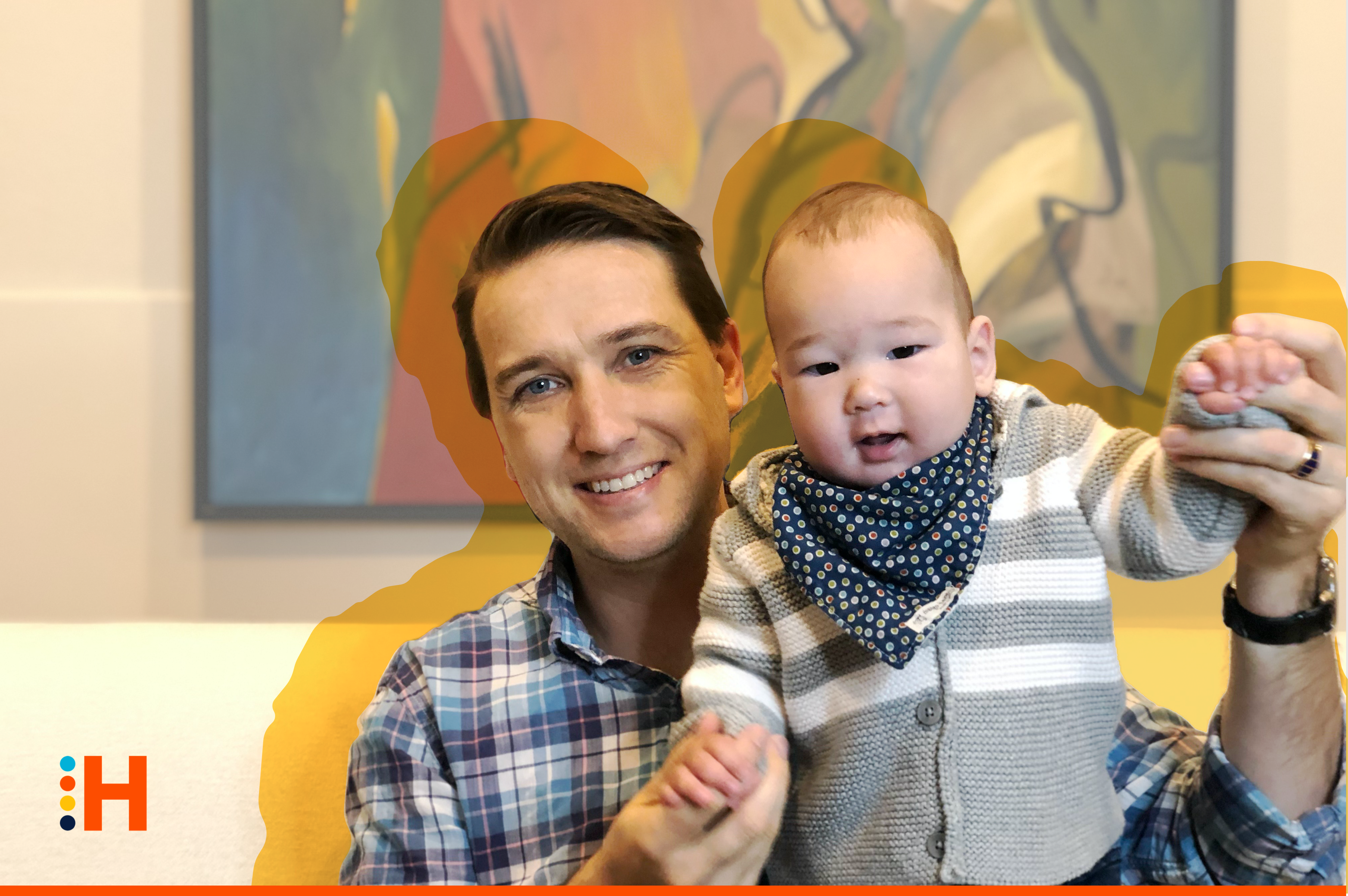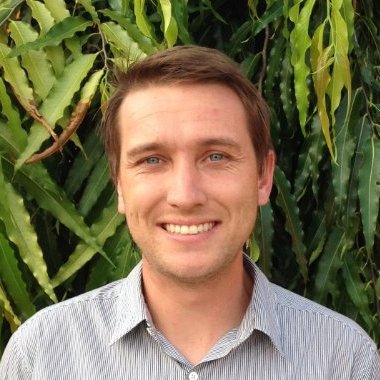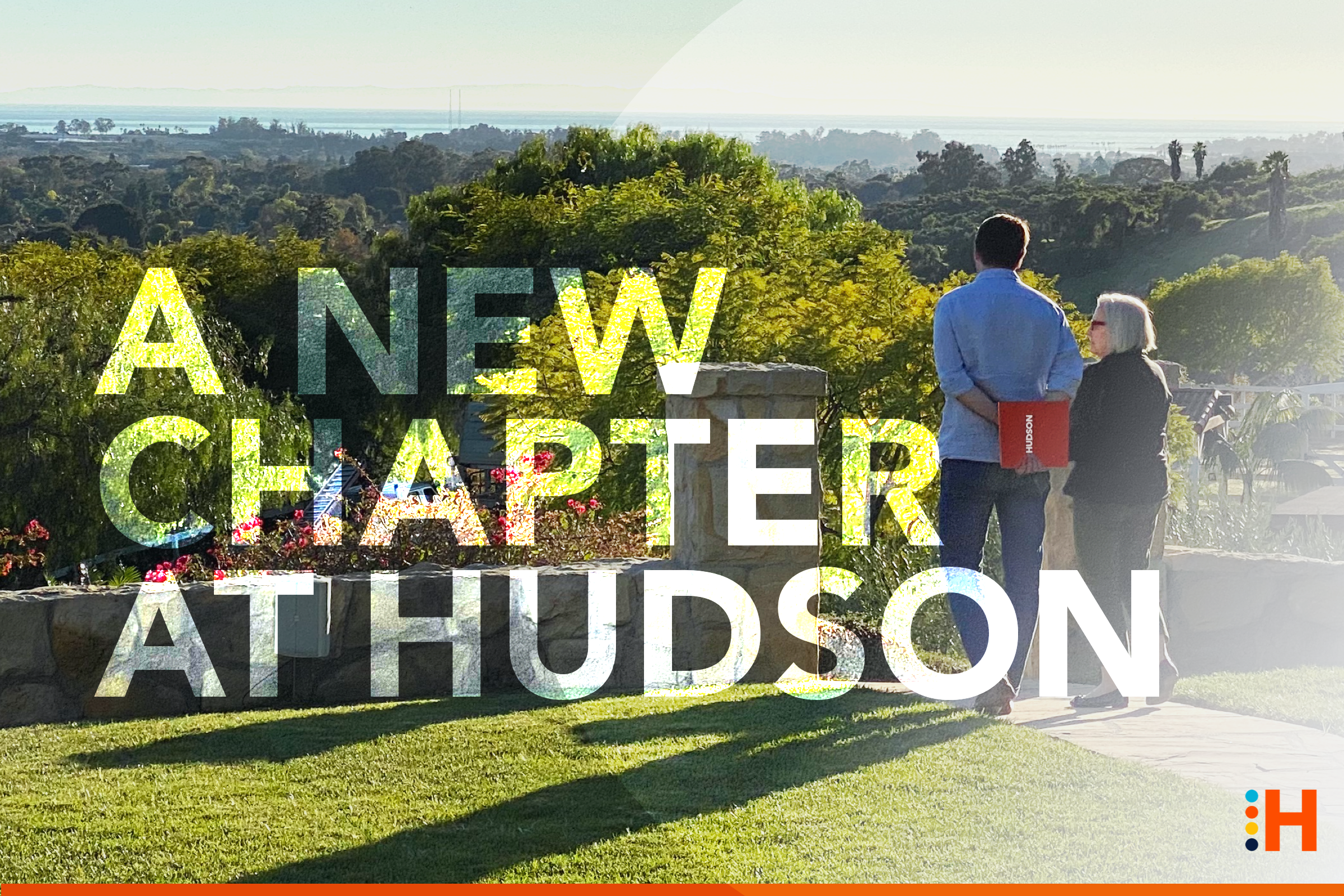
I once asked a friend and mentor of mine, John Schuster, if he could make some book recommendations to help me deepen my learning in the field of adult development. In typical Schuster fashion, he responded, “Well yes, I’d be happy to…but they probably wouldn’t be 'how to' books about adult development. I would recommend exploring stories.” After getting over some mild frustration that John couldn’t give me a quick fix for my adult development needs, I came to appreciate the wisdom in looking for connections in life’s experiences. It can sometimes be more valuable to study the periphery of a topic than to stare directly into the light.
At Hudson, we have developed a “whole person model,” which allows us as leaders and coaches to understand how the various dimensions of our lives interact and contribute to who we are at any point in time. We have all had that experience of learning something new about ourselves, and then noticing it everywhere -- at work, in our personal lives, in our dream lives. This of course is because we bring our full selves to everything we do, and our patterns, beliefs, and values have a way of showing up, regardless of context. In other words, “Wherever you go, there you are.”
Turns out, as I near the bend towards 40, I’ve just embarked on a significant development journey which is already rippling throughout many layers of my being. In the midst of these pandemic times, I’ve become a father. It only took me about 24 hours to realize I have landed on fertile grounds for learning that may last me a lifetime! In just 8 short months, my son, Percy Kim Hudson, has taught me more about myself than I ever could have imagined...and all this before he’s spoken a word.
I share here some reflections on the journey, and also make connections to what the first 8-months of fatherhood have taught me about how to be a better coach (and human).
Getting more ambitious about presence
Percy has quickly helped me see that, as a father, I can’t expect to have all of the answers. There are simply too many things that are new to me, and many areas where clear answers aren’t available, even in our information age. Rather than pushing for more answers, I am learning to accept that I won’t know everything, that there is an art to this dance -- in addition to my rational brain, I must use my intuition and instincts as we all find our way forward. This acceptance unlocks in me the ability to be truly present with Percy, to soak up who he is in a specific moment, rather than needing to stay 10 steps ahead. His gift to me is an equally immersive presence, as he notices every little detail of what is going on around him and with me.
This immersion in our presence with one another is a new depth to being with another person that is valuable, as people and as coaches. What would it take to get deeper into my presence with clients, in a more immersive way?
John Keats first used the term “negative capability” to describe the ability to be “in uncertainties, Mysteries, doubts, without any irritable reaching after fact and reason.” I have indeed been exercising my negative capability muscle in my time with Percy, and I have been experiencing the interplay between negative capability and presence. The more we can withhold our need for judgement and control, the easier it is to be truly present in the moment.
Giving ample attention to what is going well
I am certain I am not alone when I say that the first few months of fatherhood were really hard. We were sleep deprived, and constantly troubleshooting something important. Was he eating enough? Was he pooping enough? Was he opening his eyes enough? Along the way, we made countless silly mistakes, and we will most definitely make many more in the future.
A habit my wife and I got into which has made a big impact for us has been to sit down after a long day and run through “wins of the day.” It usually takes 5-10 minutes, and it can include anything, small or large. After spending a day spinning our wheels about the many things we could do better, it has been grounding to remind ourselves of the many positives that we can be grateful for. Often the list was a lot longer than we expected.
And I can notice a parallel process in my coaching. As coaches, we want to make an impact, and naturally gravitate toward development areas with our clients. In the process, it is easy to overlook the many strengths that the client brings to the table. The client may not even be aware of some of their own strengths. While an overall focus on growth areas is appropriate, we support our clients’ success more fully by also identifying and helping them understand their strengths.
Not taking oneself too seriously
It has been key to survival to find the humor that is hidden amongst the challenges of caring for an infant. The times I have been able to step back and laugh at the messiness of it all, I have been able to keep myself in perspective, and appreciate the moment. Sure -- maybe I’m covered in spit up and I have no idea what day it is, but we are doing it and it’s fun and beautiful as well. It is not always available to me, but when I can access it, it opens a new way of being with myself, my wife, and my son.
As coaches, we can sometimes be so committed to doing our work -- following a methodology, getting results, asking expansive questions -- that we miss opportunities for lightness. Sometimes these lighter moments offer doors into new insights.
These first 8 months have been messy, hard, and some of the most joyous months of my life. I am grateful for the lessons Percy has offered me already, and the way that they can shine a light on opportunities I have to deepen my connection with others and impact as a coach.



